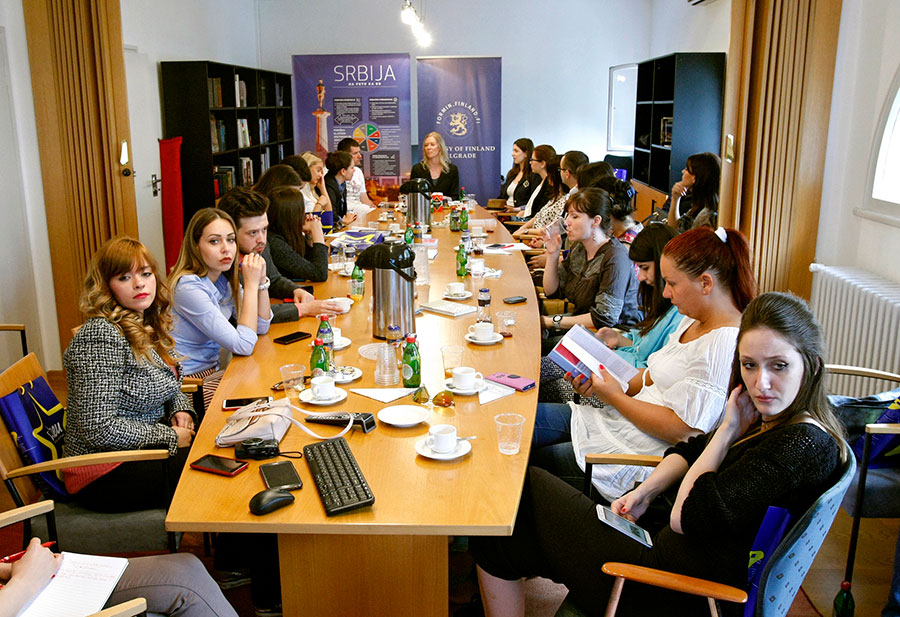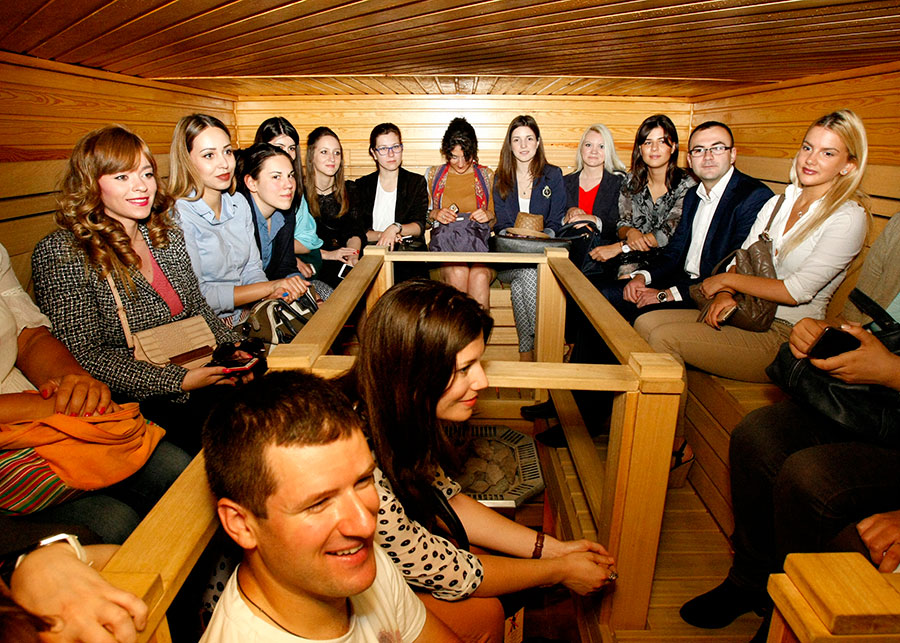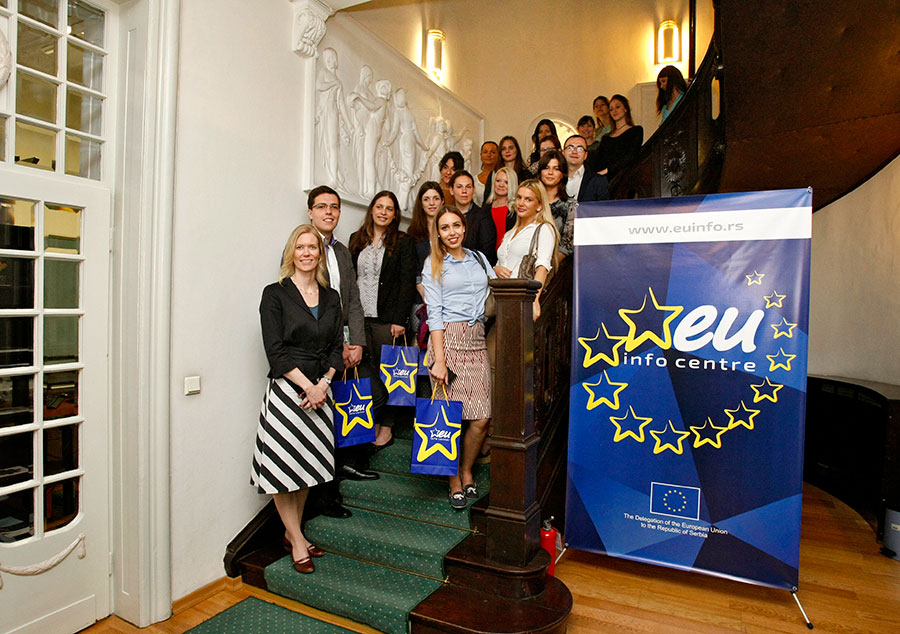During her conversation with students of the Faculty of Economy, Faculty Law and Faculty of Security, Deputy Ambassador of Finland Outi Isotalo said Helsinki was supportive of Serbia’s path to EU membership.
At the meeting with students within the “EU Open Doors Day” campaign, Isotalo said Finland’s 21-year membership in the EU brought it stability, economic growth and opened many opportunities for the youth and workers to move freely around Europe.
“This is the message we want to convey to Serbian students. We support Serbia’s EU integration process and see its future in the EU,” Isotalo said.
EU membership entails both developed institutions and making compromises

Speaking about Finland’s experience in the process of EU accession, Isotalo said Helsinki submitted membership application in 1993 and became a member “only” two years later due to previously developed institutions and legislation.
According to her, not everyone in Finland was in favour of EU accession – farmers were main opponents of EU membership as they were afraid the state would stop giving them subsidies because Brussels demanded so.
Finland was, however, given permission to continue giving subsidies, Isotalo said, adding that each country gets exempted from a few obligations in the accession process, but must also be willing to compromise.
“When you are a small country, your approach should be subtle in order to get what you want. That is what the EU is about. You cannot always get what you want,” Isotalo said. A survey conducted in 2014 shows that 67 per cent of Finns have a positive attitude toward the EU.
Talking to students, she repeatedly pointed out the great role education had for the development and progress of a country. According to 2014/2015 data obtained by The World Economic Forum, Finland has the best education system in the world. There are a few private schools there, whereas 33 per cent of the population has primary education, 39 per cent of the population has upper or secondary education, whereas 28 per cent of Finns have a university degree. Unemployment rate stands at 10 per cent but is higher among the youth – around 20 per cent – Isotalo said.
EU membership negotiations send a good signal to Finnish companies
 According to her, Belgrade’s EU negotiations send a good signal to Finnish and other foreign companies willing to invest in Serbia.
According to her, Belgrade’s EU negotiations send a good signal to Finnish and other foreign companies willing to invest in Serbia.
Economy and trade ties between Finland and Serbia remain modest, Isotalo said. In 2015, Finland’s exports to Serbia amounted to EUR25.5 million, whereas the value of import from Serbia amounted to EUR16.7 million. At the moment, Finland acts as a partner in two twinning projects, helping Serbia to develop its administrative capacity in the area of transport within the Ministry of Construction, Transport and Infrastructure as well as in the area of tobacco control. Also, Finland supports Serbia’s civil sector for which it allocates EUR200 000 annually.
During their visit to the Embassy, the students had a chance to learn more about history of the Embassy building, located in Bircaninova st., commissioned in 1931 by reputable Belgrade lawyer Jovan Teodorovic and bought by Finland in 1966. They also had an opportunity to see the basement sauna. They learned more about Finland’s history, “the country of lakes and forests,” independence from Russia it gained in 1917, their economy based on natural resources and tried the unusual, traditional savoury candy called salmiakki.




